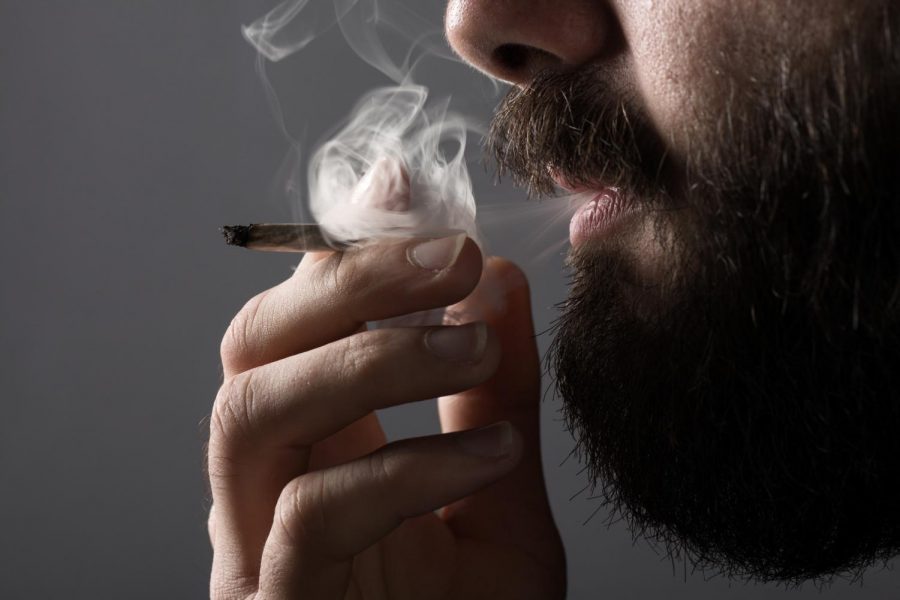Research project studies link between self-identity, recreational drug use
Feb 19, 2018
A new University study, “Aiming ‘High’ in College: The Meanings of Recreational Drug Consumption,” is investigating the link between drug use and self-identity.
Iulia Fratila, graduate student and teaching assistant in AHS, and her adviser Dr. Liza Berdychevsky, assistant professor in AHS, are leading the study.
“The life stage of young adulthood is characterized by the sense of invincibility and immortality, while the college environment offers a playground for risk-taking and experimentation with self-identity,” Berdychevsky said.
According to Berdychevsky, the goals of the study are fourfold: to investigate whether drug consumption is viewed as a leisure activity among college students; to explore the possible health risks and benefits involved; to understand the possible links between drug consumption and perceptions regarding life, identity or relationships; and finally, to identify what protective factors could be used in health education programs covering drug consumption among college students.
“In this study, we are looking at the college students’ use of recreational drugs as a means for such exploration,” Berdychevsky said.
Get The Daily Illini in your inbox!
All participants in the study are anonymous for legal reasons and therefore are not quoted in the story.
Berdychevsky said the consumption of drugs by college students in American society today is “a phenomenon that cannot be ignored.”
Fratila is collaborating with Berdychevsky for this study. Although Fratila is still a student, Berdychevsky views her as an equal in their research efforts.
“She learns fast, she works hard, she enjoys the data collection process, she is a critical thinker and she is receptive to constructive feedback,” Berdychevsky said. “I feel like we have an effective collaboration.”
The drugs being used by the participants are called “recreational.” But, recreational drugs are defined differently by different people.
Fratila said the study’s participants define what recreational drugs mean to them.
“There is no predetermined definition provided by the research team,” Fratila said. “The one distinction that we provide is that the drugs being discussed were not medically prescribed by doctor’s orders to treat a participant’s illness or health conditions.”
The participants in this study are not asked to use recreational drugs during the research process. They instead participate in interviews with Fratila, lasting anywhere from an hour to an hour and a half.
Fratila asks study participants questions she prepared with her adviser, but the conversation is open for discussion beyond those questions.
“This allows the participants the freedom to discuss whatever aspects they want about their experiences,” Fratila said. “Participants will be asked questions related to the kind of drugs used in their experiences (and) the phases, motivations, the frequency and the context of drug consumption.”
As far as who can participate, Fratila has provided certain criterion to ensure the success of her study.
“The participants must have used recreational drugs within the last two months … so that we can ensure that those discussing this topic have some recent recollection of their experiences with recreational drugs,” Fratila said. “Although, the memories and experiences with recreational drugs discussed in the interview are not limited to only those that occurred within the last two months.”
In this research project, participants cannot be involved in the criminal justice system. The Institutional Review Board considers those involved in the criminal justice system a vulnerable population, and therefore precautions must be taken if a researcher were to study these people.
Participants must also be 18 years of age or older and enrolled in college.
Additionally, the research participants are given nothing, monetary or otherwise, in return for partaking in this study. The identities of each and every participant are kept secret. All information regarding the identification of the subjects is kept completely confidential, as is required by the law.
Fratila and Berdychevsky are still at the very beginning of their study, and both of them are enthusiastic to recruit more participants for this research project.
“It is very likely that the findings of this study will pose even more new questions than they are going to answer,” Berdychevsky said. “However, that’s the whole beauty of the research process and its progress.”






